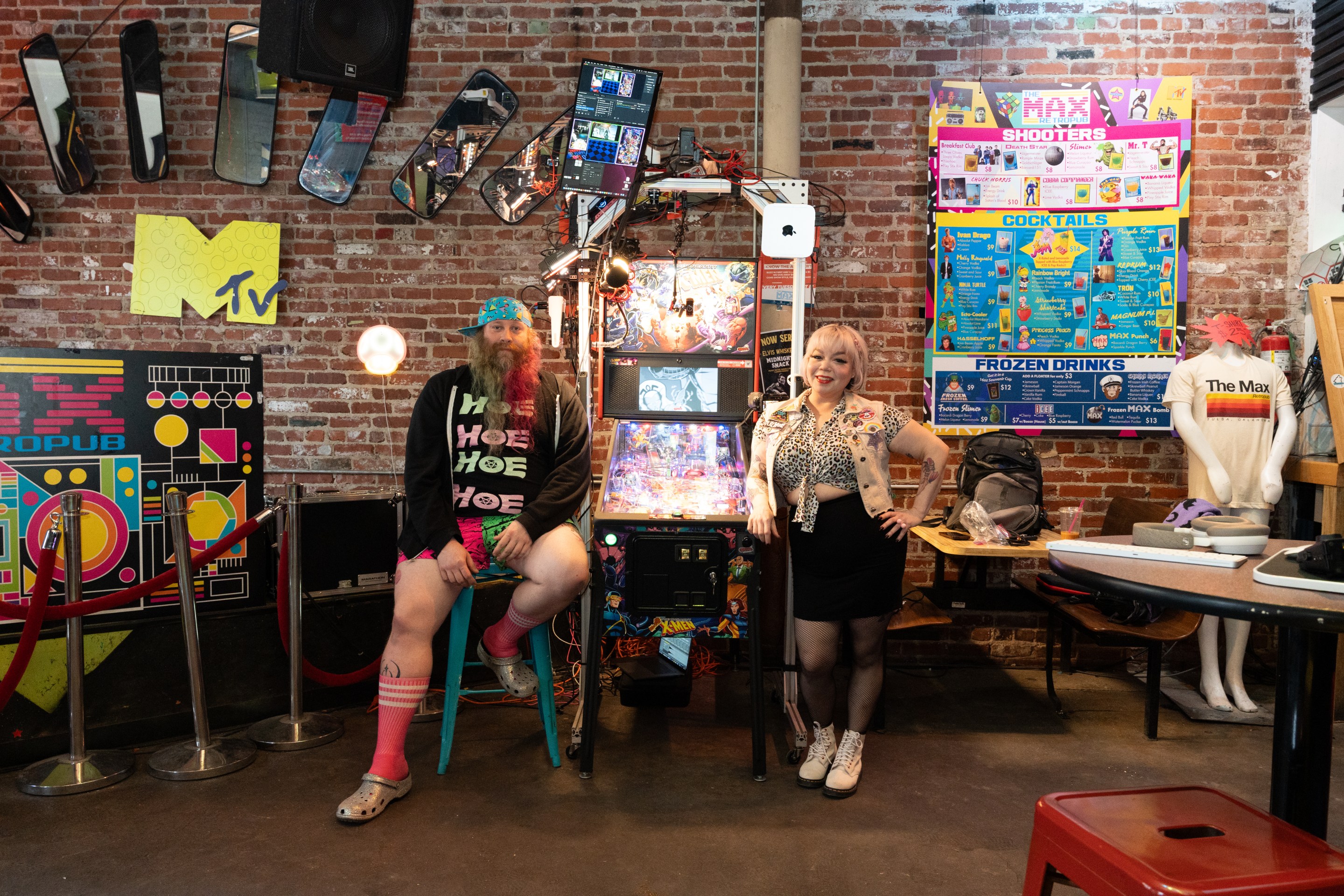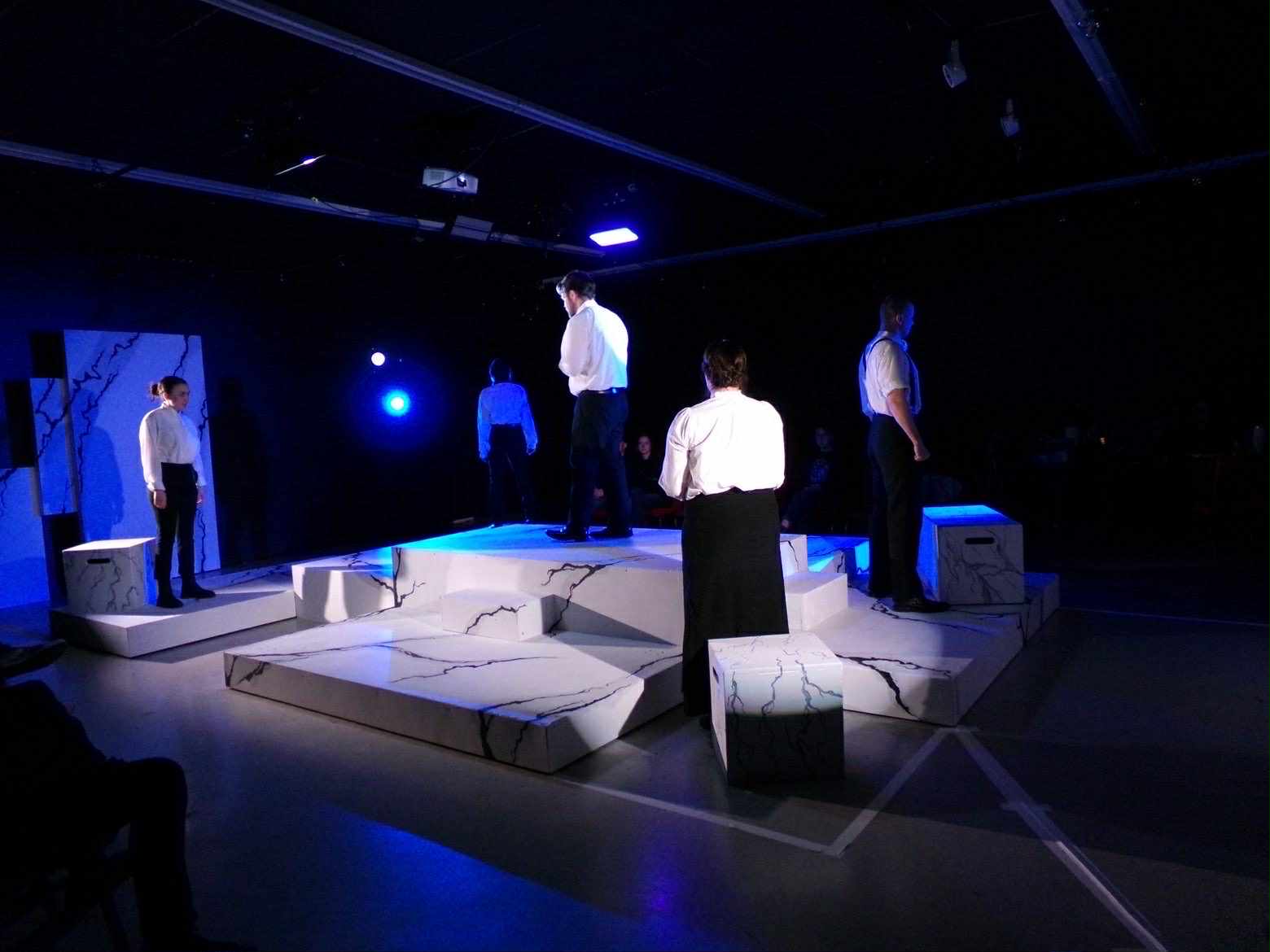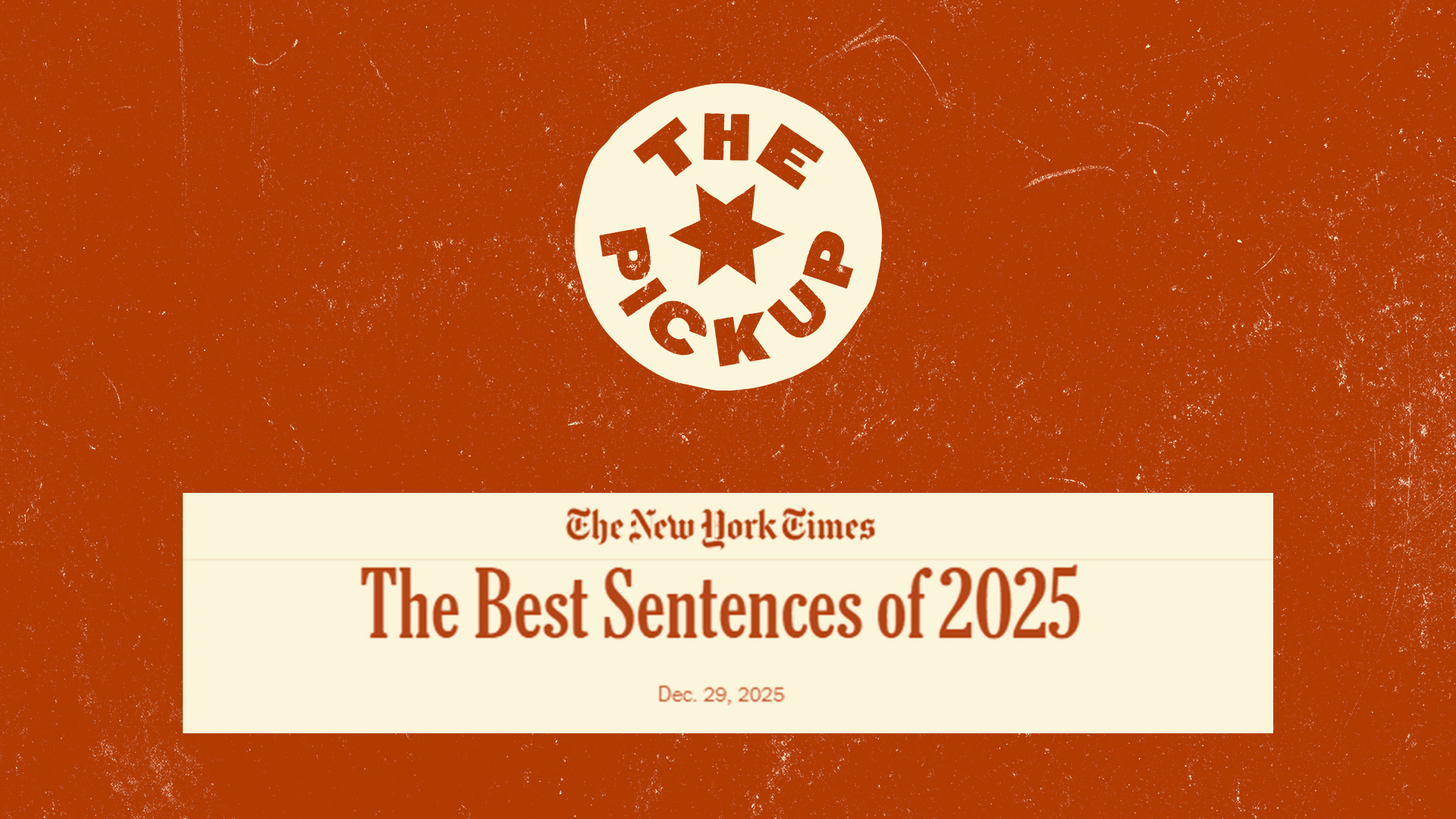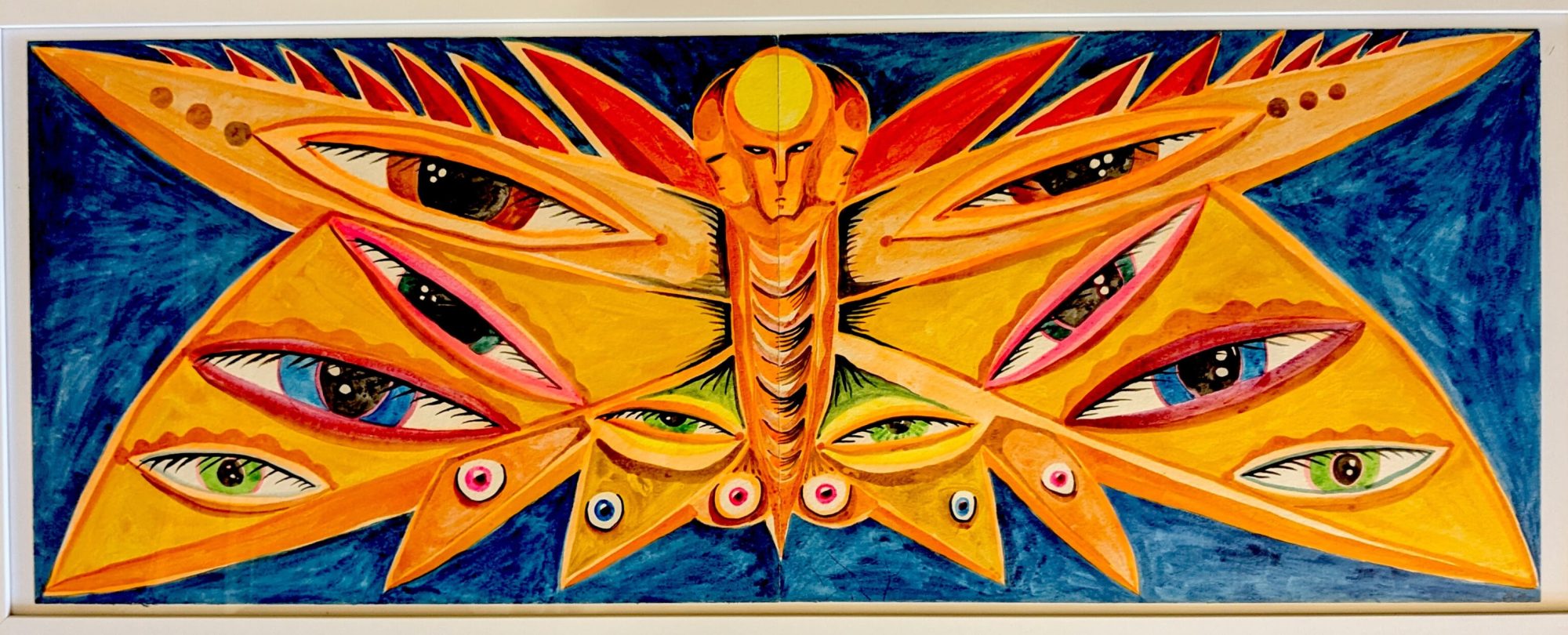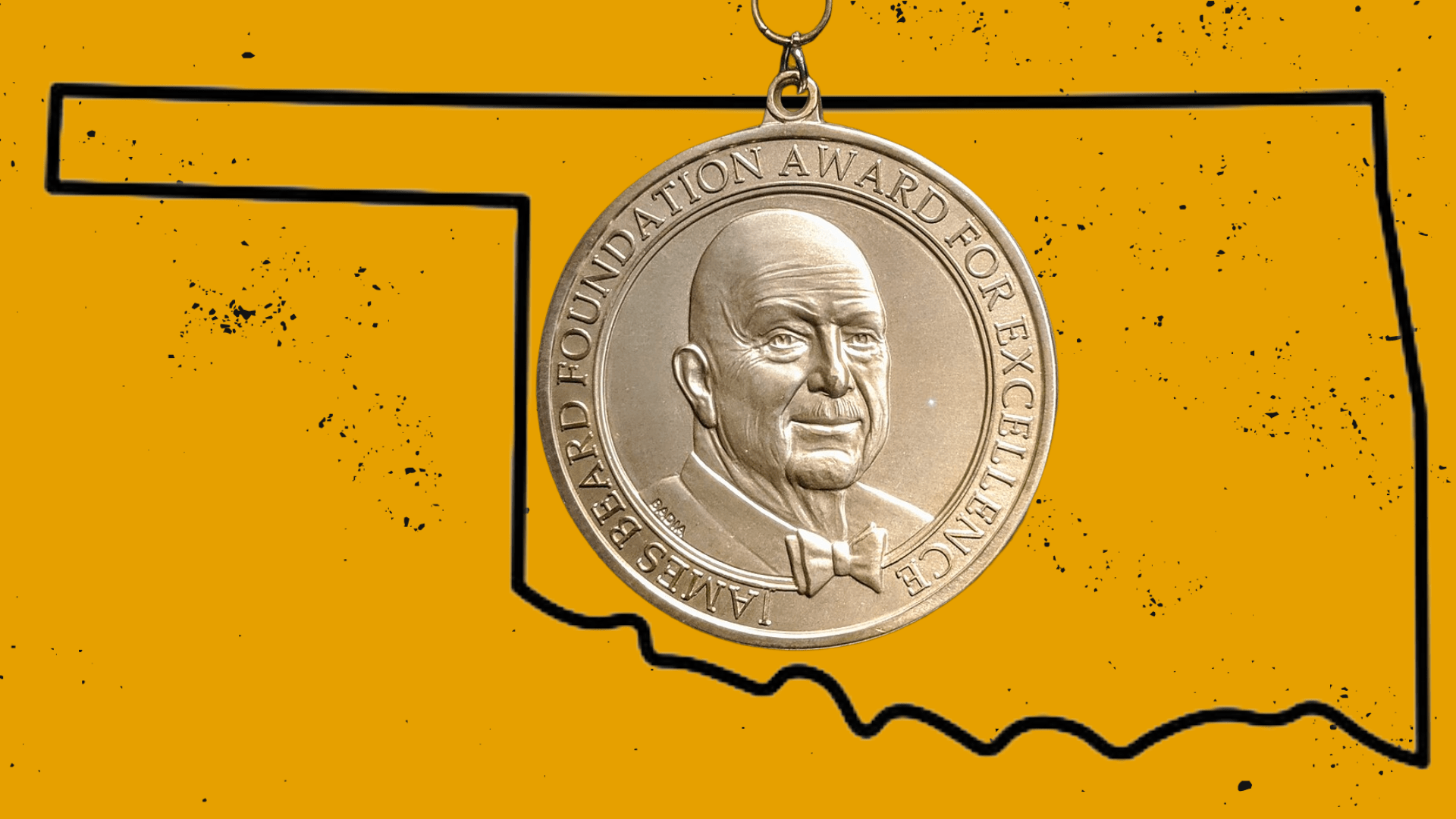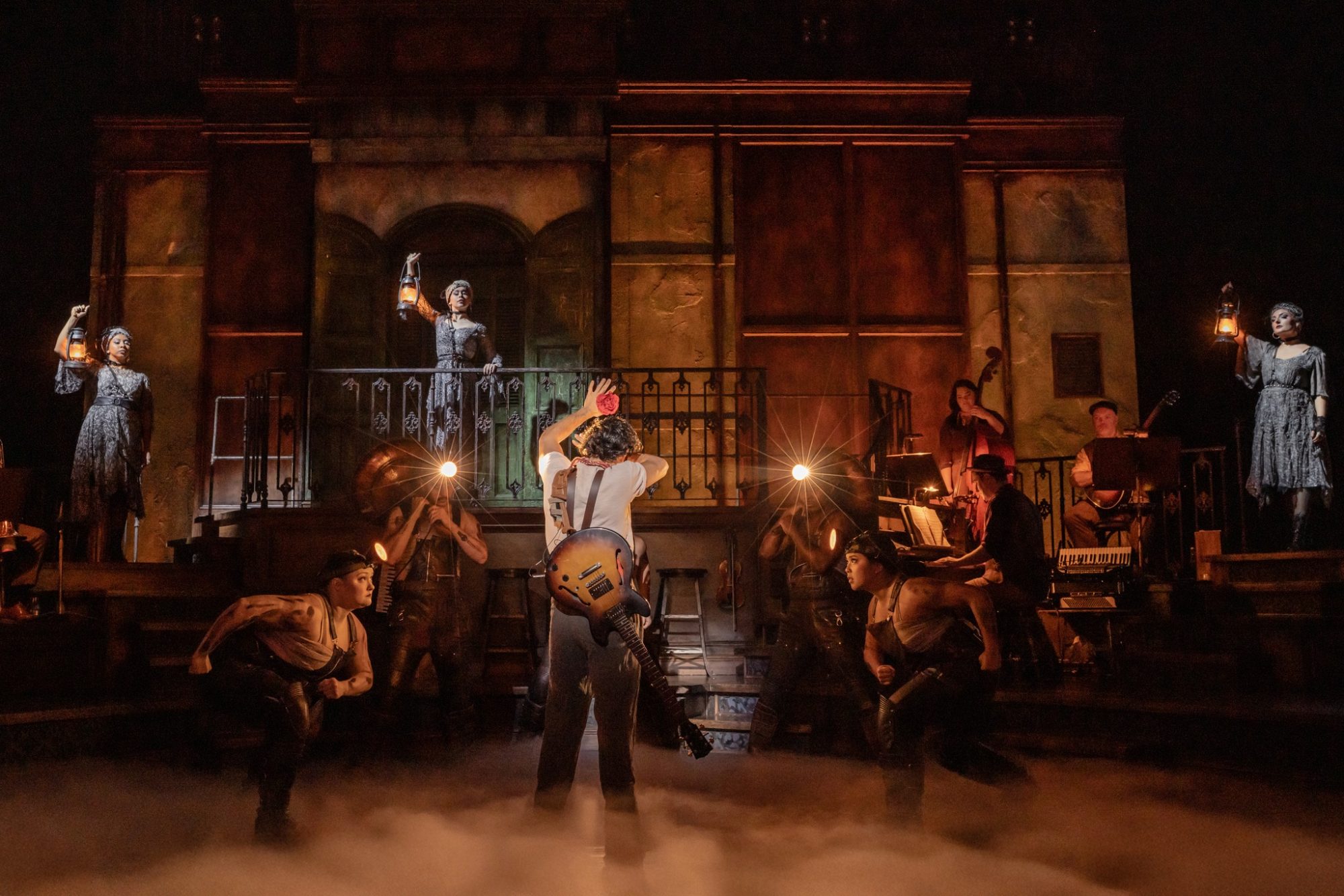Walking into Magoo’s Sports Bar & Billiards is like stepping into your uncle’s nostalgia-fueled fever dream. Neon bar signs, retro arcade games, and big-screen TVs give off a hazy glow. Nice, pretty bartenders serve reasonably priced drinks. There’s the satisfying sound of a cue ball crashing into a freshly racked game of pool. Dings, bells, and whistles surge from a cluster of well-maintained pinball machines. It’s a Thursday evening, when dozens of people meet here for a regular weekly pinball league.
I light a cigarette on the back patio a few minutes before the league games start. Within seconds, a man approaches me, casually but deliberately. I already know what's coming: He asks me for a cigarette, and I give him one.
I ask him, are you here for pool or pinball? He plays pool. When I say I’m playing pinball, he asks if it’s because my boyfriend is playing pinball. I shake my head no. (Actually, I got into this because I fell in love with a woman who loves pinball.)
Most Thursdays, I’m at The Max, where ladies and theydies get free tokens to play pinball, Skeeball, and other retro arcade games for the night. While Magoo’s leans into the classic sports bar vibe, The Max takes a different approach: The giant luckdragon from The NeverEnding Story, suspended from the ceiling, greets you at the door, and the bar serves Ghostbusters-themed cocktails and bright boozy slushies. It’s a ‘90s kid’s wonderland.
Magoo's is a storied pool hall institution. The Max is a dive bar made over to emulate the trendy barcades in Dallas or Portland. Pinball sits at the center of their Venn diagram. The contrasting playing styles and overall vibes at Magoo’s and The Max represent a larger tension within the pinball community. The subculture—which is predominantly male—reveals a world of gender politics as complex as the games themselves.
There is no “men’s league” in pinball. There is an “open league,” which anyone can join, and a “women’s league.” The International Flipper Pinball Association’s new gender inclusion policy codifies that all cis, trans, and nonbinary players who identify with womanhood are welcome to the women’s league without requiring proof of identity.
The reason for this? The competitive pinball scene is marked by gatekeeping and, at times, toxic behavior, according to IFPA Women’s Advisory Board member Samantha Bacon. “Whether it’s from emotional outbursts by men when they win or lose, or the serious attitudes they have when competing, or outright looking down on beginning players, open tournaments can be difficult to jump into by women who do not see themselves as competitive,” Bacon explains.
Local pinball operator Lucas DeWoody points out that a pinball player’s risk of physical injury is quite low: “I've never seen anybody get injured playing a pinball unless they were one of those super rowdy dudes1 who hit the thing so damn hard it almost tipped over and then they had to catch it."
DeWoody's partner Rita D'LaVane, who is also a regular pinball player and an advocate for inclusive spaces, puts it more bluntly: "The reason why gendered tournaments exist is because there are men who can't stand losing to people who are not other men."
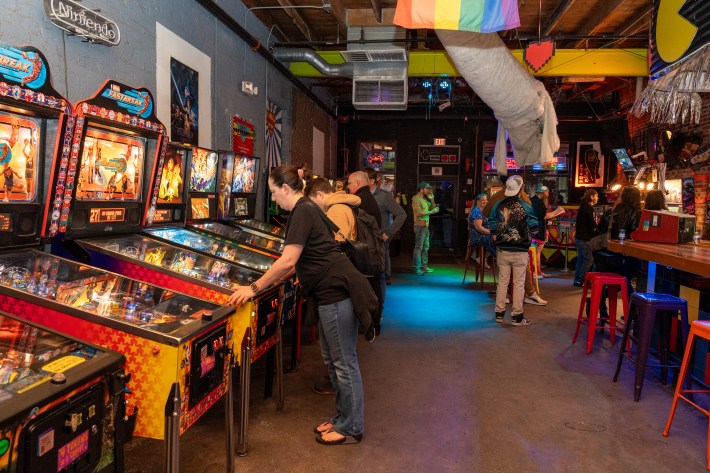
Pinball has a long history of being designed by men for men. The “spring plunger” games of the mid-1800s evolved into the recognizable pinball arcade-style games of the 1940s, and with them came designs targeting the male gaze. Why else would this 1947 Humpty Dumpty pinball machine feature provocatively dressed cartoon women? Pinball technology has evolved since then, but, still, many of the best new machines draw from "dad rock” (Guns N’ Roses, Foo Fighters, Rush) or classic “guy movies” (James Bond, The Godfather, Star Wars).
Pinball went from being associated with the mafia in the 1970s2 to an integral part of nerd culture in the 1990s. In a kind of ouroboros, arcade games cannibalized the pinball industry around Y2K, and then kids stopped going to arcades. What’s the point when you can play Xbox at home? But almost nobody has a pinball machine in their living room, and for good reason. They cost thousands of dollars, are difficult to move, and require maintenance.
Locally, pinball started making a comeback when The Max opened in 2010. Last I checked, there are 72 public machines across 16 locations in Tulsa. Thirty-two of those are at Magoo’s, 15 are at The Max, and the rest are sprinkled across town in bars, restaurants, bowling alleys, and movie theaters.
The culture is far from monolithic. As a broad generalization, players fall into two camps. Some are technically oriented; others play by feel and intuition. The first type is all about competitive play and structured rules, according to DeWoody, while the second is “more likely to smoke weed.” James Ainesworth, another local pinball operator, thinks of it as the "sports-like" competitive players versus the "punk rock" casuals.
If you’ve ever played pinball in Tulsa, chances are you’ve played on a machine owned by Mike Denton, DeWoody, or Ainesworth. Between the three of them, they own about 134 pinball machines.
- Mike Denton owns 63 pinball machines through his company, Hangar Pinball. Many of them are at Magoo’s, which streams pinball worldwide, or nearby restaurants and movie theaters. When I met him at a recent Thursday league night, he seemed most excited about his newest games, which were Metallica, Dungeons and Dragons, and Pulp Fiction.
- Lucas DeWoody owns 54 pinball machines and runs Flip City Pinball. Many of their machines are at The Max or Starlite Bar, some are rented by individuals for private use, others are at a warehouse studio or home, and Rita D'LaVane (DeWoody’s partner) has the Pulp Fiction machine. DeWoody, who is soft-spoken and has a slight lisp, jokes that Tron is his favorite. (“It’s just one of the prettiest games ever made.”) The real answer is the one tattooed on his leg: Elvira and the Party Monsters.
- James Ainesworth owns 17 pinball machines, which you can play at Mercury Lounge, Whittier Bar, Yellow Brick Road, Cabin Boys Brewery, and Pie Hole Pizzeria. He also runs ThrillHouse Games, a small retail shop at 71st and Memorial specializing in video games and consoles. His favorites are the 90s-era machines with dot-matrix displays, like Baywatch and Fishtails.
For Denton and DeWoody, owning and operating pinball machines is basically a full-time job. Denton loves the competition, whereas Ainesworth values pinball's unpredictable, physical nature (especially compared to video games, which follow preset programming). For DeWoody, it’s more about fostering an inclusive community with local players, which is why they, along with D'LaVane, are starting Tulsa's premier Queer Pinball League.
Last week’s Uncanny X-Men Pinball Release Party at The Max offered a glimpse at what such a league might look like. Players of various skill levels gathered around the flashing new machine, all discussing strategies, swapping tips, and cheering each other on. The party’s special guest, Dax ExclamationPoint—a drag performer who competed on season 8 of RuPaul’s Drag Race (and happens to be a long-time personal friend of D'LaVane)—performed a short routine as Storm around 10 p.m.
The connections between pinball and cosplay are somewhat obvious. Both celebrate nostalgia and fandom. Both often draw from pop culture, sci-fi, and fantasy themes. Dax ExclamationPoint says drag and pinball also have a few things in common: “It’s a very niche, specialized interest. It costs more than it looks. And it takes someone who wants to put more into something than they are getting out of it.”
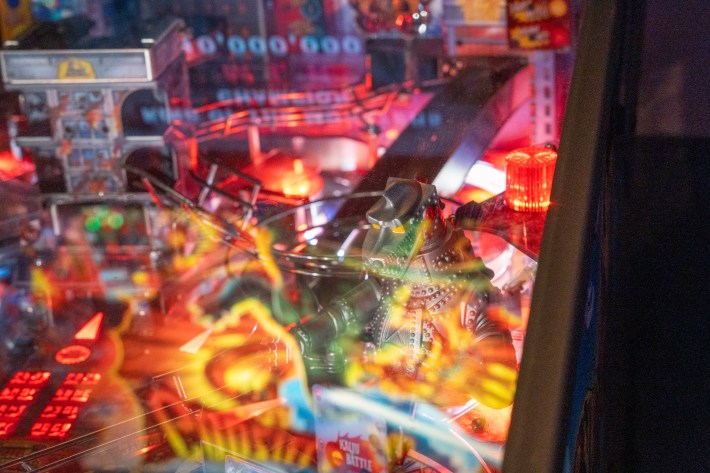
Not everyone is trying to flip the script on pinball, however. “The thing we do different from Lucas [DeWoody] or James [Ainesworth] is that we’re really focused on the more tournament-driven3 aspects of pinball,” Denton tells me on a Thursday night at Magoo’s. “We really all love to compete with one another because that drives the requirement to know the games better.”
Monthly major tournaments and WPPR (World Pinball Player Rankings) events make Magoo’s a hub for competitive pinball. Unlike The Max, it’s all-ages, allowing younger players a chance to work their way up to state, national, and even international competitions.
Competition becomes intense when there is a lot of money on the line. The last Route 66 Adult Championship had a $9,000 pot, and bigger tournament prize pools can range from $25,000 to $50,000. People can get really upset with the game, even when they are sober. “You add about nine or 10 beers to that, they’re gonna pick up the game, drop it, kick it, start cussing like maniacs,” Denton says.
When I ask if Denton has any thoughts on the IFPA’s new gender inclusion policy, he says, “DEI and all aside, the reality is men are just generally better at tracking things with aim. I mean, 200,000 years of evolution made it that way. Not to mention the upper-body strength required to actually get a good nudge game going, move the game left and right, or to control the ball. Women just don’t have the upper-body strength to do that.”
The IFPA Women’s Advisory Board members disagree: Pinball is not a game where any particular body type has an advantage. The division is less about skill and more about creating a welcoming launchpad into a hobby that, historically, has not been the most inviting to women.
Experienced players learn to apply just the right amount of force, using minimal, controlled movements to trigger necessary machine responses without going overboard, according to DeWoody. I’ve seen my five-foot-one, 60-something-year-old mother trigger the tilt warning.4 Upper-body strength clearly isn’t a prerequisite for high-level play. All that really matters is that you don’t let that 80-gram ball pass through those two plastic flippers. When in doubt, aim for the blinking lights.
Pinball is a game, however, where neurodivergence could be considered an advantage. “Pinball teaches you that ADHD isn't a disability; it's a superpower that no one taught you to use,” DeWoody explains. For example, multi-ball mode5 feels like pure chaos at first. But maybe your brain is already used to tracking five things at once instead of forcing focus on just one. Maybe you can stop trying to follow only one ball, sort of unfocus your eyes, and follow them all at the same time. DeWoody likens this to a meditative state: "When I started to really hone the pinball intuition, I started to see car crashes before they happened because [I’ve] started tapping into that part and being able to regulate it and use it in other parts of [my] life." They call it “future-sight.”
Samantha Bacon, the IFPA member, is autistic, and finds that pinball appeals to neurodivergent players in unique ways. "I click really well with mechanical things," she explains. "I know a lot of trans and non-binary people are also autistic. We tend to process these inputs differently, often tracking movement in our periphery better than most." As a trans woman, Bacon has the unique experience of learning in the open league and then being welcomed by the women’s league.
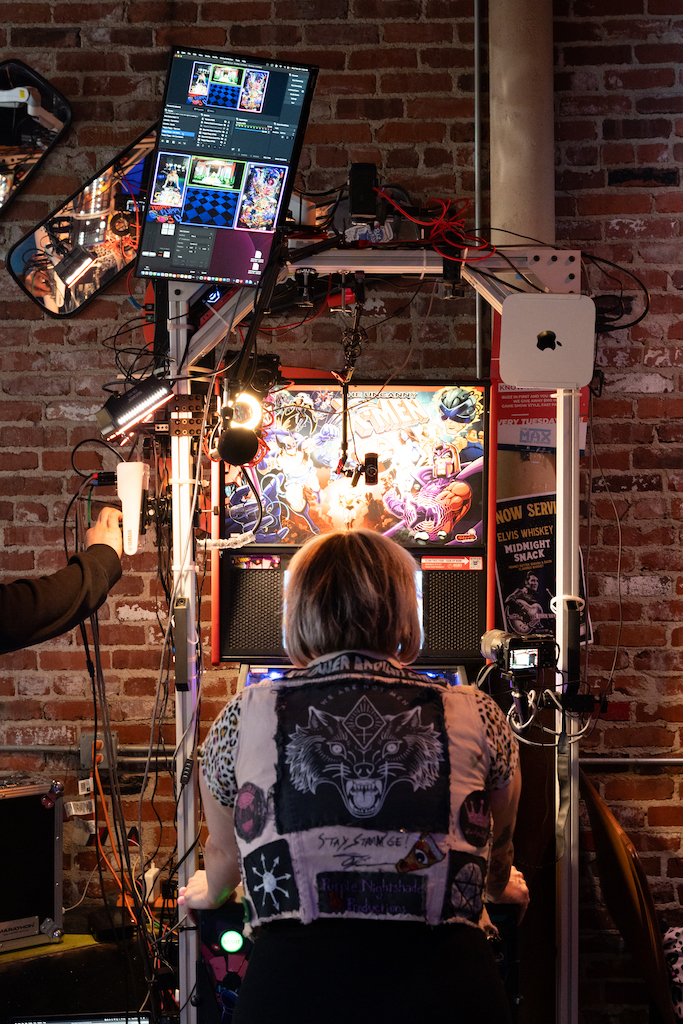

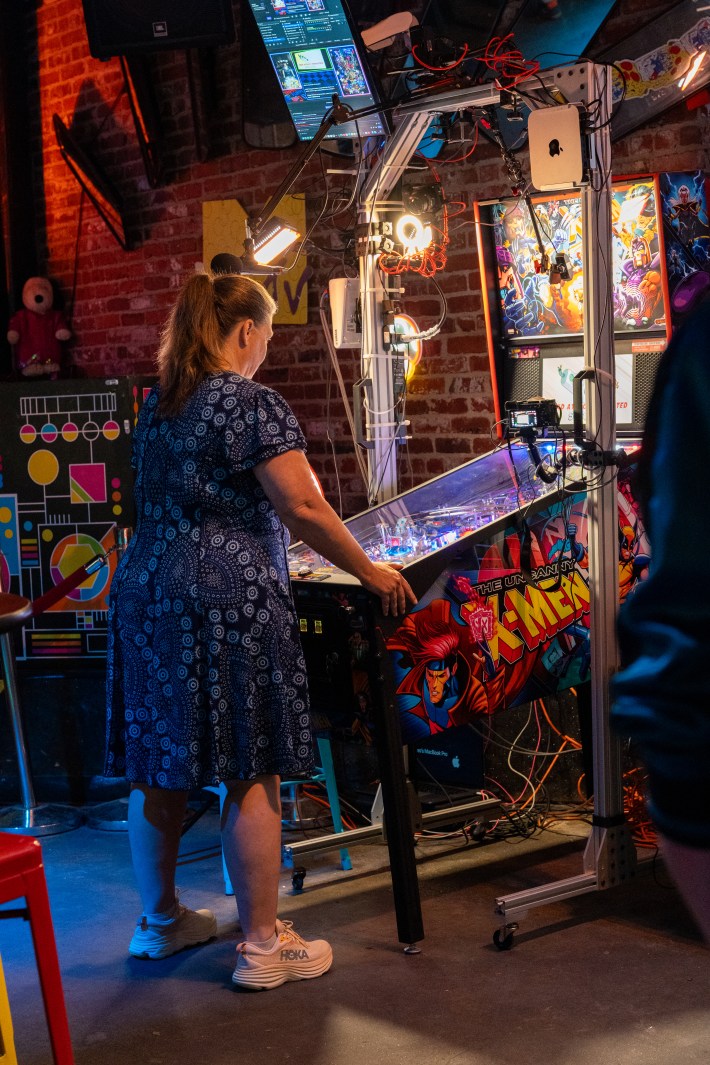
Unlike traditional leagues that started as business ventures to attract players, DeWoody and D’LaVane are planning to structure their new queer pinball league as a membership club. In a membership club model, players pay a small fee (essentially as a nominal barrier to entry) that goes toward the cost of maintaining machines and registering tournament results.
As the masterminds behind Ghoul Friends Queer Cabaret, they’re no strangers to building inclusive community in Tulsa. “When it comes to things like this, you can't just expect people to trust you, so you create the environment and invite them, and then they can determine themselves if they feel like this is an environment that they feel welcome inside of.”
You have to make yourself a magnet for the people that you want to attract, according to D'LaVane. An important perk of the membership club is that its leaders can control the crowd and know who is coming.
The league will play at a variety of venues. Home base will likely be at The Max, where most of their main games are. But the goal, DeWoody says, is to have structured league events that float around different queer-friendly places, which happen to be most of their favorite bars.
Mike Denton of Magoo’s scoffs at the idea of a queer pinball league, calling it a “nothing burger." All the players are friends at Magoo’s, he says. “Half the people in this room are gay. Who gives a shit?" But I think that misses the point. Pinball brings people together—that’s a given. It’s not about who’s technically allowed to play. It’s about creating a space where people feel accepted and protected.
Thinking about the man who asked me for a cigarette at Magoo’s: Was he motivated by a genuine nicotine craving or making the opening move in a game that I didn’t want to play? These are the minute calculations women make dozens of times daily in bars, at work, and walking down the street. It’s hard to feel at home when you’re constantly doing that math.
Straight men have always had a safe space to feel at home while they play pinball. It’s called a regular bar.
Footnotes
- Players like this are why phrases like “toxic masculinity,” “aggro bro shit,” and “raging internet incel energy” kept coming up in my research.Return to content at reference 1↩
- Public pinball machines were illegal in New York City between 1942 and 1976. During that time, pinball was largely considered a form of gambling that especially exploited children and the working class. Roger Sharpe convinced the Manhattan City Council that pinball is a game of skill (like foosball or bowling) and not a game of chance (like slot machines or dice). Pinball: The Man Who Saved the Game is a good movie about this. Return to content at reference 2↩
- A pinball league is a structured competition where players compete in scheduled matches, earn points based on performance, and advance through rankings over a season to determine a champion. Tournaments can be grueling—DeWoody mentioned participating in events lasting 18 to 24 hours. Return to content at reference 3↩
- The tilt function in pinball uses sensors to detect when a player bumps or shakes the machine too hard. After enough tilt warnings, the machine will shut down, and you’ll lose all your points for that round. Return to content at reference 4↩
- To trigger multi-ball in pinball, you usually need to complete a specific set of objectives, like locking a certain number of balls in designated holes. Then, the game unleashes several balls simultaneously, letting you rack up big points while frantically trying to keep them all in play. Return to content at reference 5↩
